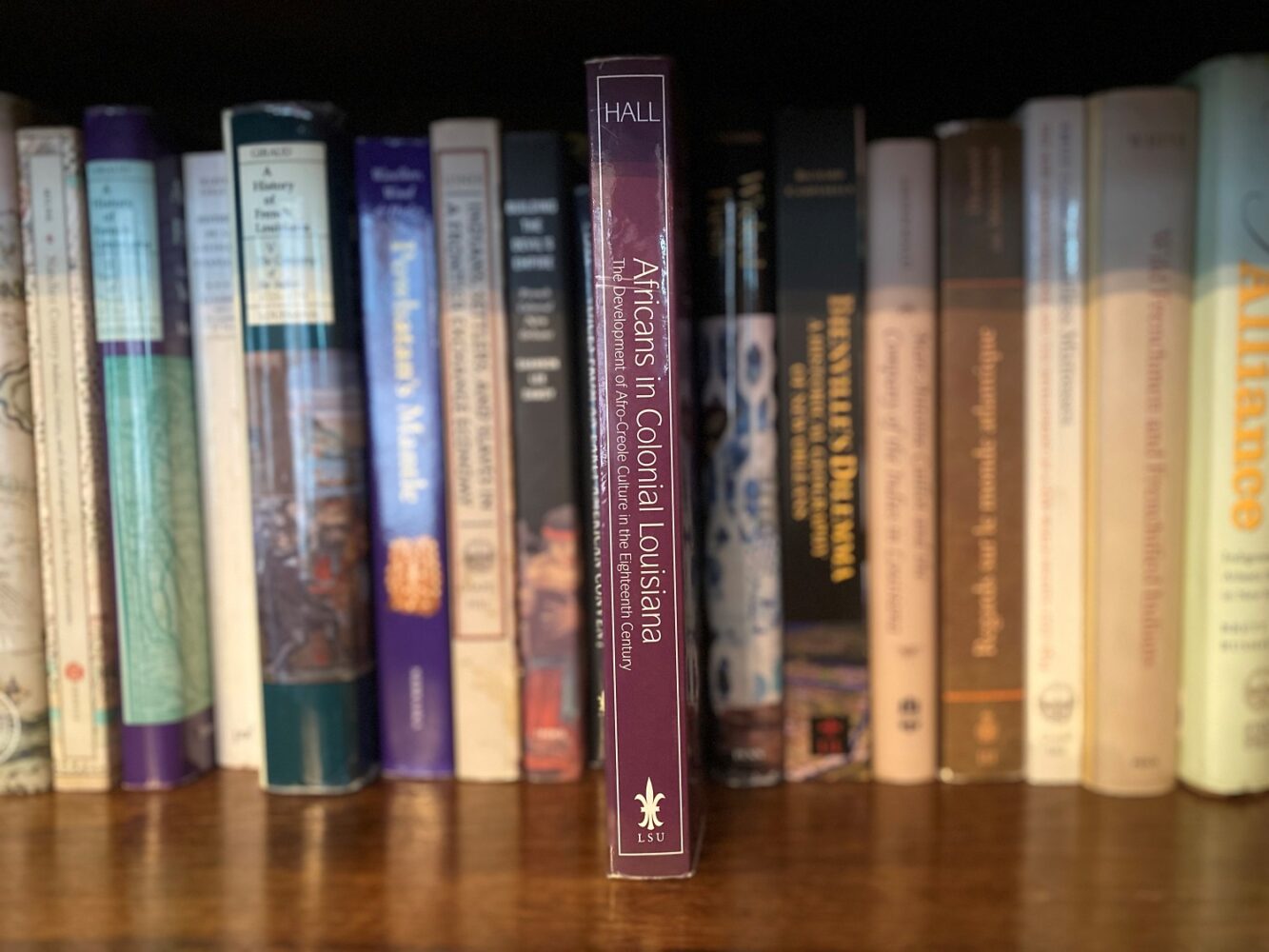Latest
Remembering Gwendolyn Midlo Hall
A farewell to the influential historian
Published: August 29, 2022
Last Updated: August 29, 2022

August 29, 2022
The staff of 64 Parishes and the Louisiana Endowment for the Humanities (LEH) is deeply saddened to learn of the death today of Gwendolyn Midlo Hall, who in 1994 was named LEH’s Humanist of the Year. One of the most important historians ever to work in the field of Louisiana history, Hall broke new ground for generations of researchers with her seminal work Africans in Colonial Louisiana: The Development of Afro-Creole Culture in the Eighteenth Century.Born in New Orleans in 1929, Hall was a lifelong advocate for civil rights, spending her early adulthood as a social and political activist. In New Orleans she participated in and helped organize direct-action community groups, including the New Orleans Youth Council, Young Progressives, Civil Rights Congress, and the Southern Council for Human Welfare, whose interracial membership roster defied the status quo of the Jim Crow South.
Hall left New Orleans in 1949, spending time in Paris and New York before earning bachelor’s and master’s degrees from the Universidad Nacional de México. She taught briefly at Elizabeth City State College in North Carolina, until her attempts to organize students against the KKK and American military intervention in Vietnam resulted in an FBI investigation and her dismissal. In 1966, despite her inclusion on the FBI’s blacklist, Hall enrolled in the University of Michigan’s doctoral program in Latin American history and completed her PhD in 1970. Her first book, Social Control in Slave Plantation Societies: A Comparison of St. Domingue and Cuba, was published by Johns Hopkins University Press in 1971, the same year Hall joined the faculty of Rutgers University.
During her twenty-five-year tenure at Rutgers, Hall taught classes on the history of Latin America, the Caribbean, and the African Diaspora while pursuing her own research interests. In 1984 she began piecing together archival findings from Louisiana court, census, sacramental, and notarial records to create a database dedicated to recovering the identities of enslaved individuals. Combing through French and Spanish documents, Hall collected data on enslaved people’s ethnicities, languages, religions, birthplaces, occupational skills, family relations, health, physical appearances, and even degrees of rebelliousness (as recorded in the archival record). The database formed the foundation for Hall’s groundbreaking work Africans in Colonial Louisiana: The Development of Afro-Creole Culture in the Eighteenth Century, published in 1992 by Louisiana State University Press.
Africans in Colonial Louisiana helped shift the focus of colonial American history from one devoted exclusively to the Anglo-American past—i.e., the thirteen British colonies—to a more inclusive vision of what constituted “American” history. The book won numerous national awards, including the American Studies Association’s John Hope Franklin Prize. Now thirty years old, Africans in Colonial Louisiana has become a canonical work and remains widely read by students and scholars of African, American, Atlantic, Caribbean, and Latin American history.
In the 1990s Hall continued to add to the database she had begun in 1984. A research grant from the National Endowment for the Humanities and matching funds from various other sources, including the Louisiana Endowment for the Humanities, University of New Orleans, and The Historic New Orleans Collection, accelerated the pace of data collection. In 2000 she released the first version of what would become the Louisiana Slave Database, a searchable collection of more than one hundred thousand records tied to enslaved individuals and free people of color. Used by scholars, genealogists, and casual researchers alike, the database was an early example of the power of the digital humanities. It provided unprecedented access to the identities of individuals of African descent who lived in the Lower Mississippi Valley between 1718 and 1820.
Hall returned to New Orleans in the early 2000s, splitting her time between the city and a home in Mississippi. She published her third monograph, Slavery and African Ethnicities in the Americas: Restoring the Links, with University of North Carolina Press in 2005, and an edited collection of essays titled A Black Communist in the Freedom Struggle: The Life of Harry Haywood with University of Minnesota Press in 2012. Following Hurricane Katrina and its devastation, she moved to Guanajuato City, Mexico, to live with her son, Haywood Hall, and his family.
Last year Hall published her final book, a memoir. Haunted by Slavery: A Southern White Woman in the Freedom Struggle (Haymarket Books, 2021) chronicles a life fully lived.
Gwendolyn Midlo Hall died in Guanajuato City, Mexico, on August 29, 2022.
Erin M. Greenwald is a historian and Vice President of Public Programs at the Louisiana Endowment for the Humanities. She serves as Editor in Chief of 64 Parishes.
